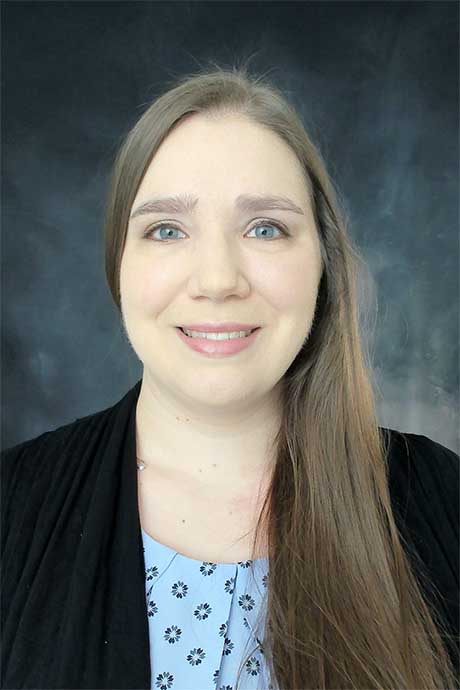From Naz to the CDC: A nursing grad’s journey to public health
As the worldwide COVID-19 pandemic continues to evolve, Nazareth alumna Hannah Kisselburgh ‘12 goes to work each day at the Centers for Disease Control and Prevention (CDC) in Atlanta wondering if she will get the deployment call for the coronavirus response.
“Several of my colleagues are currently deployed for the response. Most work in the Emergency Operations Center (EOC),” said Kisselburgh, who earned her bachelor’s in nursing from Nazareth. “Others have gone to airports across the country to conduct screening. I will likely be deployed to the EOC as well. It’s truly a team effort. The people at CDC who work on responses put their regular job on hold or have someone else cover while they assist with the response.”
At the CDC, she is a surveillance epidemiologist on the National Outbreak Reporting System (NORS) team. The system captures food, water, and enteric (intestinal) disease outbreaks caused by person-to-person transmission, animal contact, environmental contamination, and unknown modes of transmission. Other federal partners, states, territories, and local health departments all report through NORS.
Originally from Oswego, N.Y., Kisselburgh worked in a Syracuse hospital for two years after graduating from Nazareth, but knew a career as a hospital nurse was not the right fit for her. “The hospital had an outbreak of norovirus my first winter working there. I was wondering who got to investigate the outbreak, determine the source, and extent of the outbreak.”
Several months later, her mom sent her the CDC’s “Solve the Outbreak” phone app, which introduced her to public health as a career. “Not only does a job exist looking at outbreaks, but the field has a name: epidemiology,” said Kisselburgh. “I knew that was the field I wanted to work in. I just never knew what it was called. I started researching what I would need to work in epidemiology and applied to schools for my master’s in public health.”
She chose Emory University because it is next to the CDC main campus in Atlanta. She knew there would be internship opportunities that would hopefully lead to a job.
“After taking a class taught by a CDC employee, I met with her to talk about potential practicum and thesis opportunities. I was able to do both in her branch, the Enteric Disease Epidemiology Branch.” After her practicum, they hired her as a student worker. Upon graduating from Emory in 2016 with her MPH, she took a job at that same branch in Atlanta. While Kisselburgh admits she doesn’t enjoy or excel at networking, “I’m glad I reached out to the person who helped me get my first job in public health.”
Kisselburgh is the data request manager for her NORS team at the CDC, providing a database of CDC data when requested by researchers. She is also the eastern region representative, acting as the point of contact for state officials who have questions.
She has advice for any current or prospective students wanting to get into public health.
- Explore different opportunities. One place or type of work may not be a good fit, but another may be.
- There are many segments within public health — clinical trials at a hospital; government at local, state, or federal levels; industry; non-profits; and health communications.
- Make sure you love what you do (or at least like it).
“Finding a good fit for your life and interest is vital for your happiness. If that changes over time, that’s okay!”
Contact
Julie Long | Chief PR Officer, | (585) 389-2456 | jlong2@naz.edu
Nazareth University is an inclusive community of inspired learners, educators, and changemakers who for 100 years have been driven by a bold commitment to action, empathy, equity, and leading innovation for the common good. Impact experiences are at the heart of a Nazareth education, preparing each student to discover within themselves the potential to cultivate positive change in their life's work, in any career field, and in a world that is constantly evolving and infinitely interconnected.
Our broad academic offerings present a range of study options typical of larger universities, yet achieved in our supportive campus culture. Nearly 2,100 undergrad and 600 graduate students enroll in degree and certificate programs and engage in collaborative, transformative learning experiences, preparing for the professions and society of today and tomorrow. In a learning community that purposefully integrates liberal arts and professional programs, Nazareth University graduates are able to launch a lifetime of impactful leadership in communities and workplaces near and far.

Hannah Kisselburgh ‘12 earned her nursing degree at Nazareth, and talks about her journey to the CDC.